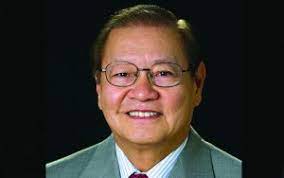
“MIT has remained a big part of my life since I enrolled as a graduate student in 1976, and graduated with a PhD in 1980. I credit part of my success professionally and personally to the Institute, so giving back came naturally to me when I had a chance.
I was lucky enough to work in George Büchi’s lab. George had a notorious reputation as a “slave driver,” but I found him both reasonable and fair, and had no problem with him from day one! He was demanding of his graduate students, postdocs, and lab. technician, and expected everyone to arrive at 9 AM and work until day’s end at 5 PM. I adhered to the schedule as well as I could during the first year, however, after proving myself to George with a publication, I started coming in later as he knew I often worked well after 5 PM into the night.
As a foreign student, I delayed graduating in order to secure a permanent job offer from a company. This didn’t happen until late spring of 1980. I received the best compliment of my life from George, who during my last days at MIT, told me that I had done more than enough to earn my Ph.D. I am deeply honored, and more than happy, to have contributed an endowed research fund in his honor.
I am also in debt to my parents, C.P. Chu and Y. Lai, who supported me throughout my school years. They were not highly educated, but understood the importance of an education. My father passed away before I left Hong Kong, but my mother was proud that I became a graduate student at MIT. Honoring them is pretty much a must for me so donating an endowed research fund in their memory was an easy decision.
I went to medical school, not because I was tired of organic chemistry, quite the contrary, I still miss working in the lab. As a matter of fact, after my residency in New York, I received a Fogerty Visiting Fellowship at NIH. There, I did synthetic organic chemistry in the medicinal branch of the National Cancer Institute. If I had continued my career in academic settings, I no doubt, would have applied to do a sabbatical at MIT as a visiting scientist.”
Ping S. Chu, M.D., Ph.D.
